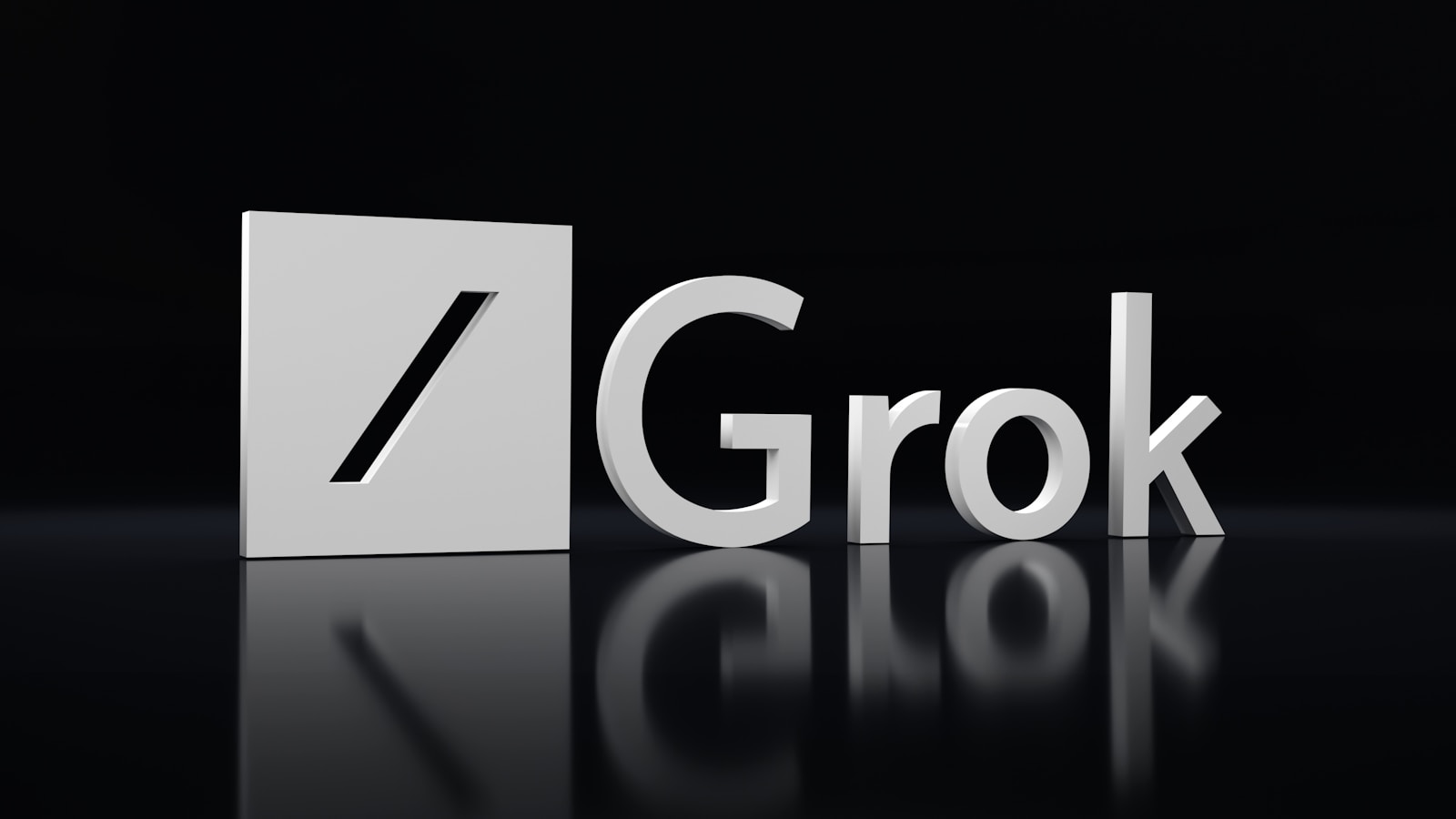Artificial intelligence is no longer a novelty in software development—it is now a standard part of the workflow for most engineering teams. A recent industry survey of more than 600 developers shows 9 out of 10 teams lean on AI coding assistants for at least one stage of the software-delivery pipeline, and more than half say these tools shave a quarter or more off their cycle time. That break-neck adoption rate has accelerated competition among vendors, leading to a steady stream of feature-packed releases in the first half of 2025. Below is a closer look at the biggest launches, the differentiators that actually matter, and how to decide which assistant fits your stack.
xAI Grok 4 Code
Launch date: July 9, 2025
Why it’s interesting: Grok 4 Code ships with a 1.8-trillion-parameter backbone trained on the Colossus supercomputer and a dedicated policy layer tuned for software engineering. Early users report that it handles chain-of-thought explanations better than language-first rivals, making it valuable for code reviews and onboarding docs. It’s also the only flagship model that’s free—if you already pay for the X Premium+ subscription—which could sway budget-constrained teams. The trade-off: occasional policy mismatches on politically sensitive prompts and a still-growing plugin ecosystem.
Anthropic Claude Opus 4 & Sonnet 4
Launch window: Rolling out via API, Amazon Bedrock, and Google Vertex AI
What’s new: Claude Opus 4 stretches context windows to 500 k tokens and can “stay on task” autonomously for roughly seven hours, a boon for long-running migrations or refactors. Claude Sonnet 4 inherits many of Opus’s reasoning upgrades but trims the bill by nearly half, targeting startups that need power without enterprise pricing. Both models include a “thinking summary” channel that exposes the agent’s intermediate steps—handy for security audits and compliance sign-offs.
OpenAI Codex Engineering Agent
Status: Research preview for ChatGPT Pro, Team, and Enterprise
Stand-out capability: Unlike the original Codex, which focused on function-level autocomplete, the new agent can spin up sandboxes, run unit tests, and write remediation pull requests. It also understands repo-level context such as dependency graphs and CI policies. OpenAI is testing an “observability hook” that streams agent actions into Datadog or New Relic, making it easier to roll back if the bot goes astray.
Google Gemini CLI
Availability: Open-source; free tier grants 1,000 daily requests
Key features: Gemini CLI runs locally or in Cloud Shell and accepts natural-language directives like “add JWT auth to the Go microservice” before patching code and updating Dockerfiles. It supports 60 calls per minute (enough for most solo developers) and inherits real-time web-search augmentation through Model Context Protocol, so it can, for example, grab the latest API version from Stripe Docs on the fly.
GitHub Copilot + Azure SRE Agent
Event: Microsoft Build 2025
Big shift: Copilot graduates from suggestion engine to autonomous peer. The optional Azure SRE add-on lets it open incidents, query logs with Kusto, and propose infrastructure fixes—all from inside Visual Studio Code. For enterprises already standardized on Azure DevOps, this narrows the gap between application and ops automation, though it also raises the stakes for access-control hygiene.
Quick-Glance Comparison
| Tool | Best For | Pricing | Killer Feature |
|---|---|---|---|
| Grok 4 Code | Teams that value long-form reasoning and zero-cost seats | Free with X Premium+ | Multimodal code explanations |
| Claude Opus 4 | Large codebases & compliance-heavy orgs | Premium | Seven-hour autonomous runs, 500 k tokens |
| Claude Sonnet 4 | Cost-conscious startups | Mid-tier | Near-Opus performance at half price |
| OpenAI Codex Agent | Full-stack web & API projects | Pro/Team/Enterprise | End-to-end PR generation with test harness |
| Gemini CLI | Terminal-first DevOps & SRE | Generous free tier | Live web context, offline mode |
| Copilot + Azure SRE | Azure-native enterprises | Seat-based | Incident creation & infra remediation |
Choosing the Right Assistant for Your Stack
- Workflow integration matters more than benchmark scores. If your team spends most of its day in a terminal, a CLI-first tool like Gemini will feel seamless. IDE-centric shops may prefer Claude or Copilot’s deeper Visual Studio Code hooks.
- Mind the data-privacy model. Grok 4 Code currently retains prompts for 90 days; Claude Opus offers a compliance tier that deletes logs in 24 hours. Regulated industries should check those retention windows before committing.
- Evaluate downstream ecosystem. Copilot’s extension gallery now hosts more than 800 verified plugins—from on-call handoff generators to JIRA ticket auditors—while newer entrants like Grok are still courting third-party devs.
- Budget scales quickly with seat count. A six-person team using Claude Opus daily can rack up a five-figure annual bill; mixing Sonnet 4 for juniors and Opus 4 for staff engineers can trim costs without sacrificing horsepower.
The Bottom Line for 2025
AI coding assistants have evolved from autocomplete curiosities into multi-agent teammates that refactor legacy services, patch Kubernetes manifests, and write documentation while you sleep. Adoption stats show tangible productivity gains, but the next frontier is governance: ensuring these agents follow security policy, respect open-source licenses, and leave an auditable trail. Choose the tool that best aligns with your workflow today—and keep a close eye on the policy knobs you’ll need tomorrow as autonomy levels rise.
The best AI coding assistants in 2025 include options like GitHub Copilot, ChatGPT Plus, and specialized tools like Qodo that provide different strengths depending on a developer’s specific needs. Some excel at generating complete functions from descriptions, while others prove more valuable for debugging existing code or explaining complex programming concepts. The landscape continues to evolve rapidly as companies compete to offer the most capable and user-friendly AI programming solutions.
1. GitHub Copilot
GitHub Copilot is an AI-powered code assistant that functions as a virtual pair programmer. It was developed through a collaboration between GitHub and OpenAI to help developers write code more efficiently. The tool integrates directly into popular code editors and suggests whole lines or blocks of code as developers type.
Copilot uses machine learning algorithms trained on billions of lines of public code. It analyzes the context of what developers are working on and provides relevant suggestions based on patterns it has learned. This feature helps reduce the time spent on routine coding tasks.
The AI assistant is particularly helpful for repetitive code structures and boilerplate implementations. It can suggest complete functions based on comments or function names, allowing developers to focus more on problem-solving rather than typing out standard implementations.
Many developers appreciate Copilot for its ability to understand context across multiple files in a project. It can offer customizable and contextual suggestions that adapt to a developer’s personal coding style and preferences.
While GitHub Copilot was an early leader in the AI coding assistant space, some users note that its autocomplete and chat models may not be as current as newer alternatives. Competition in this space continues to grow as more AI coding tools enter the market.
For maximum benefit, GitHub provides best practices for using Copilot which emphasize that it works best as an assistant rather than a replacement for developer knowledge. Experts recommend reviewing all AI-generated code before implementation.
Copilot offers a subscription-based pricing model with special tiers for individual developers, businesses, and educational institutions. Students and popular open-source project maintainers may qualify for free access under certain conditions.
2. ChatGPT Plus
ChatGPT Plus has established itself as one of the leading AI coding assistants available in 2025. Powered by GPT-4 and GPT-4o models, it consistently demonstrates superior coding capabilities compared to many alternatives on the market.
The service has proven to be remarkably versatile across multiple programming languages and frameworks. Developers report that the GPT-4 model handles complex coding tasks with impressive accuracy, making it suitable for both beginners and professionals.
ChatGPT Plus has passed numerous coding tests with flying colors. The platform’s ability to understand context and generate functional code snippets makes it the best AI chatbot for coding according to recent evaluations.
One standout feature is its debugging assistance. Developers can paste problematic code and receive detailed explanations about issues and potential solutions. This functionality alone saves countless hours of troubleshooting.
The code completion capabilities in ChatGPT Plus help programmers work more efficiently. It offers intelligent suggestions that match coding styles and project requirements while adhering to best practices.
For optimal results, users should provide clear, detailed prompts about their coding needs. Specificity helps ChatGPT Plus generate more accurate and usable code that requires less modification.
Many professional developers consider ChatGPT Plus the best AI tool for anything related to programming. Its comprehensive knowledge of documentation, syntax, and implementation strategies makes it particularly valuable for both learning and production environments.
Python developers particularly benefit from ChatGPT Plus services. The model shows exceptional proficiency with Python code, offering accurate explanations and debugging help that accelerates development workflows.
The subscription cost of ChatGPT Plus delivers significant value for developers who rely on AI assistance regularly. The time saved and quality of code produced generally outweigh the investment for most professional programmers.
3. Sonnet
Claude 3.7 Sonnet has emerged as one of the most powerful AI coding assistants available today. Released by Anthropic, this model shows remarkable abilities in understanding and generating code.
Sonnet excels at comprehending entire codebases at an architectural level. It can maintain context across complete repositories, making it uniquely valuable for complex programming tasks. This fundamental shift in AI coding capabilities allows developers to work with their code more efficiently.
Many programmers have been impressed with Sonnet’s coding prowess. The model demonstrates exceptional accuracy in code generation while maintaining a natural communication style that makes interaction intuitive.
In performance testing, Claude 3.7 Sonnet has achieved state-of-the-art results on TAU-bench. This framework evaluates AI agents on complex real-world tasks that involve user interactions and problem-solving capabilities. Sonnet’s high performance on these metrics highlights its practical usefulness for everyday coding challenges.
The model also introduces Claude Code, a specialized capability for working with software projects. This feature enables developers to leverage AI assistance throughout their development workflow with greater precision than previous tools allowed.
Many developers consider Sonnet the best AI for coding tasks currently available. Its ability to understand context, generate accurate code, and communicate clearly makes it particularly effective for both beginners and experienced programmers.
When paired with tools like Cline, Sonnet becomes an even more powerful coding agent. Developers have successfully used this combination to develop complete applications from concept to implementation, streamlining the development process significantly.
Sonnet represents a significant advancement in AI coding assistance. Its comprehensive understanding of code structure and context helps programmers work more efficiently while producing higher quality results.
4. Tabnine
Tabnine is a popular AI code assistant that helps developers write code faster and with fewer errors. It uses artificial intelligence to predict and suggest code completions as you type, making the development process more efficient.
This tool integrates seamlessly with most popular integrated development environments (IDEs), providing context-aware suggestions. Tabnine’s AI coding assistant accelerates software development while maintaining privacy and security for your code.
One notable aspect of Tabnine is its commitment to privacy. Unlike some competitors, Tabnine offers options that keep your code private, secure, and compliant with regulations. This feature is particularly valuable for companies working with sensitive or proprietary code.
Tabnine offers different AI models for code completion and chat capabilities. These include Universal, Protected, Claude 3.5 Sonnet, GPT-4o, and Codestral models. Each provides different levels of functionality and privacy protection.
Developers can start with Tabnine’s basic free version, which includes fundamental AI code completions and AI-powered chat with some limitations. More comprehensive features are available in paid tiers.
When compared to other coding assistants like JetBrains AI or GitHub Copilot, Tabnine holds its own unique advantages. Many developers appreciate how it uses the entire codebase as context for making relevant suggestions.
The tool works across numerous programming languages and frameworks, making it versatile for full-stack developers. It learns from your coding patterns over time, becoming more personalized to your specific style and needs.
For teams looking to improve coding efficiency while maintaining code privacy, Tabnine presents a compelling option. Its ability to understand context and provide relevant suggestions helps reduce the time spent on repetitive coding tasks.
5. Amazon CodeWhisperer
Amazon CodeWhisperer is a machine-learning-powered code companion that helps developers by generating code suggestions in real time. It works alongside programmers as they write code, offering helpful recommendations to speed up development.
The tool uses AI to understand what developers are trying to accomplish and suggests relevant code blocks. These suggestions can range from simple functions to more complex implementations, helping coders work more efficiently.
CodeWhisperer is designed as a general-purpose code generator that integrates with popular development environments. This makes it accessible for developers regardless of their preferred coding platform.
Developers appreciate CodeWhisperer’s ability to analyze contextual information from comments and existing code. This helps it provide more accurate and relevant suggestions that align with the programmer’s intent.
The tool supports multiple programming languages, making it versatile for different types of projects. This broad language support allows developers to benefit from AI assistance across various development tasks.
According to some developers, CodeWhisperer has revolutionized their coding approach by improving both speed and efficiency. The time saved on routine coding tasks can be redirected to more complex problem-solving activities.
Amazon has continued to improve CodeWhisperer as part of its AI developer tools ecosystem. It pairs well with other Amazon developer services to create a comprehensive coding assistance platform.
While some developers report mixed experiences, many find CodeWhisperer helpful for certain coding scenarios. The tool appears to excel at generating boilerplate code and common programming patterns.
6. Qodo
Qodo is a quality-focused AI coding platform that helps developers write and understand code more effectively. Formerly known as Codium, this tool has positioned itself as one of the best AI coding assistants in 2025.
Developers appreciate Qodo for its powerful code generation capabilities. The platform offers comprehensive assistance that extends beyond simple code completion to include more advanced features like test coverage improvement.
Qodo Gen, the platform’s code generation tool, stands out among competitors in the AI coding assistant market. It ranks highly on multiple lists of top AI code generators for 2025, often appearing alongside established tools like GitHub Copilot and Amazon Q Developer.
The tool helps programmers increase productivity while maintaining code quality. Unlike some alternatives that focus solely on speed, Qodo emphasizes writing reliable, maintainable code.
When compared to other popular tools like GitHub Copilot and Codeium, Qodo demonstrates competitive features and performance. A detailed comparison shows that each platform has unique strengths, with Qodo particularly excelling in code quality assessment.
The platform integrates seamlessly with popular development environments. This makes it accessible for teams already working with established workflows and toolchains.
Qodo’s AI models understand context and can generate code that aligns with existing codebases. This helps maintain consistency across projects and reduces the learning curve for new team members.
7. Claude AI
Claude AI is a powerful coding assistant developed by Anthropic. It stands out as one of the top models on the market with notable capabilities for programming tasks. Many developers have incorporated it into their workflow for both simple and complex coding projects.
The platform is designed to be safe, accurate, and secure, which makes it reliable for professional development work. Claude can assist with debugging, code optimization, and generating solutions to programming problems with relative ease.
Recent comparisons between coding assistants have put Claude in direct competition with other tools like Cursor Agent. These evaluations help developers understand which assistant might better suit their specific needs.
Claude excels at understanding context in coding problems. This feature allows it to provide solutions that align with a developer’s intent rather than just following literal instructions. Its ability to maintain context over long conversations makes it valuable for complex projects.
However, not all reviews are entirely positive. Testing of Claude 3.5 Sonnet for programming tasks showed mixed results, with the model passing only one test in some evaluations. This suggests that while powerful, Claude may still have limitations in certain coding scenarios.
When comparing Claude to other coding assistants like ChatGPT, developers should consider their specific needs. Both platforms have different strengths and limitations when it comes to generating and explaining code.
Claude offers a straightforward interface that many find intuitive. Its documentation features and ability to explain complex code in simple terms make it particularly helpful for both beginners and experienced programmers.
As with all AI coding assistants, human oversight remains essential. Claude works best as a collaborative tool that augments a developer’s skills rather than replacing them entirely.
8. Visual Studio IntelliCode
Visual Studio IntelliCode stands out as one of the most reliable AI coding assistants available today. This tool enhances the coding experience by providing intelligent code completions based on context and patterns.
IntelliCode is integrated directly into Microsoft’s popular development environments, Visual Studio and Visual Studio Code. It uses machine learning models trained on thousands of public codebases to deliver smart suggestions.
The AI assistant improves upon the traditional IntelliSense capabilities in several meaningful ways. It prioritizes completion suggestions based on the current coding context, making the most relevant options appear at the top of the list.
One of the biggest advantages of IntelliCode is its accessibility. The tool is completely free to use in Visual Studio Code, making it available to developers of all levels and budgets.
Developers appreciate how IntelliCode learns from their coding patterns. The system adapts to personal coding styles over time, making increasingly relevant suggestions as it becomes familiar with a programmer’s habits.
The tool excels at enhancing software development using artificial intelligence through its context-aware completions. These smart suggestions help reduce keystrokes and potential errors.
IntelliCode continues to rank among the top AI code assistants despite increased competition in the market. Microsoft regularly updates the tool to improve its machine learning capabilities and expand language support.
For teams working in collaborative environments, IntelliCode helps maintain coding consistency across projects. Its suggestions reflect best practices from high-quality open-source repositories, gently guiding developers toward industry standards.
9. Replit AI
Replit AI is a set of powerful coding tools that help developers build applications and websites more efficiently. It functions like having software engineers on demand, making programming accessible to everyone regardless of experience level.
The platform offers multiple AI coding assistants designed to streamline the development process. These tools can generate code, explain complex concepts, and even build entire applications based on simple descriptions.
One of Replit AI’s standout features is Replit Agent, which can automatically build apps and websites from user ideas. This tool transforms concepts into functioning code without requiring extensive programming knowledge.
Experienced developers have noted that Replit’s chat feature tends to be the most effective of its AI tools. According to user observations, the chat function delivers better results than the dedicated generate, transform, and explain features in most cases.
Replit AI integrates directly into the Replit development environment. This integration creates a seamless workflow where developers can code, test, and deploy applications all in one place.
For beginners, Replit AI offers significant advantages by providing coding assistance that helps navigate common challenges. The tools can suggest solutions and explain concepts in straightforward terms.
While some users have questioned whether Replit AI delivers on all its promises, the platform continues to improve its AI capabilities. The company regularly updates its tools to enhance performance and reliability.
Replit’s documentation provides comprehensive guidance on using its AI features effectively. These resources help developers leverage the full potential of the AI tools for their projects.
The combination of AI assistance with Replit’s collaborative features makes it particularly valuable for team projects. Multiple developers can work together while benefiting from AI suggestions and code generation.
10. Tempo
Tempo is a newer entry in the AI coding tool landscape that has quickly gained attention. It’s a visual code editor specifically designed for React development that uses AI to bridge the gap between design and code implementation.
Unlike some competitors, Tempo focuses on the entire development stack rather than just generating snippets. This AI-powered visual code editor helps teams build full-stack applications more efficiently.
One of Tempo’s key strengths is its collaborative features. The platform gives product managers, designers, and engineers the ability to collaborate visually on code, making it easier for non-technical team members to contribute to projects.
The tool has been recognized as particularly promising for real-world projects. Its approach to handling production-grade applications sets it apart from tools that only excel at generating small code snippets.
Tempo Labs, the company behind the tool, has positioned it as a solution that’s “70-80% there for prototypes that could scale” with additional refinement. This makes it a good option for teams looking to quickly develop MVPs that can later be expanded.
Developers have noted Tempo’s effectiveness for building React applications specifically. The visual interface combined with AI capabilities helps streamline the creation of React components and full applications.
For teams working in modern JavaScript frameworks, Tempo offers significant advantages in development speed. The tool’s visual nature helps reduce the complexity of building React applications while maintaining code quality.
Y Combinator has backed Tempo, indicating strong potential for the platform’s approach to AI-assisted development. This backing has helped the tool gain visibility among startup teams looking for efficient development solutions.
Understanding Code AI
Code AI tools transform how developers work by automating routine tasks and helping programmers understand complex codebases. These intelligent assistants have evolved rapidly, offering increasingly sophisticated capabilities for modern development workflows.
Importance in Modern Development
Code AI tools have become essential for developers facing growing project complexity and tight deadlines. They boost productivity by automating repetitive coding tasks, allowing programmers to focus on creative problem-solving.
AI coding assistants help catch bugs early through intelligent code analysis, reducing debugging time and improving code quality. This leads to faster development cycles and more reliable software.
For new team members, AI tools like Denigma help quickly understand unfamiliar codebases by explaining code in plain English. This accelerates onboarding and knowledge transfer within teams.
Modern code AI also supports cross-language development, making it easier for programmers to work with multiple programming languages and frameworks simultaneously.
Evolution and Advancements
Code AI has evolved from simple syntax highlighting to sophisticated systems capable of generating entire code blocks. Early tools focused mainly on autocomplete, while today’s solutions understand context and programming patterns.
Modern platforms like Meta Code Llama offer specialized coding help that can be installed on local servers for enhanced security and customization. These tools provide more accurate suggestions based on existing codebases.
Open-source options like CodeT5 have emerged as reliable code generators that create bug-free code quickly. This democratizes access to advanced development tools across organizations of all sizes.
Recent advancements include:
- Intelligent refactoring that automatically improves code structure
- Natural language interfaces for explaining complex algorithms
- Contextual awareness that understands project-specific coding patterns
Key Features of AI-Based Coding Tools
Modern AI coding assistants offer powerful capabilities that transform how developers work. These tools blend intelligent automation with context awareness to speed up development cycles and reduce common coding errors.
Code Autocompletion
AI-powered code autocompletion goes far beyond traditional predictive text. These systems can generate code in multiple programming languages including Python, Java, TypeScript, Rust, and Ruby. The most advanced tools understand the developer’s intent and can complete entire functions or classes based on comments or partial code.
Some assistants analyze existing codebase patterns to offer contextually relevant suggestions that match the project’s style guidelines. This feature significantly reduces typing time and mental load.
Developers benefit from intelligent variable naming, where the AI suggests appropriate identifiers based on functionality. Many tools also insert proper documentation alongside generated code, maintaining best practices automatically.
The best autocompletion tools provide multiple suggestion options rather than a single solution, allowing developers to choose the implementation that best fits their needs.
Error Detection and Debugging
Modern AI coding tools excel at identifying bugs before code execution. They analyze code structure to detect logical errors, potential runtime exceptions, and security vulnerabilities that might otherwise go unnoticed until testing.
The most effective AI debugging assistants scan code in real-time, highlighting problematic sections with explanations of the issue and suggested fixes. This proactive approach prevents bugs from propagating through the development process.
Many tools can identify performance bottlenecks through static analysis, helping developers optimize code before deployment. They also detect common security risks like SQL injection vulnerabilities or improper authentication implementations.
Advanced debugging features include natural language error explanations, turning cryptic error messages into clear, actionable advice. Some tools even simulate code execution paths to pinpoint exactly where problems might occur under specific conditions.
Frequently Asked Questions
AI coding tools have evolved rapidly in recent years, offering developers powerful assistance with code generation, debugging, and optimization. These tools vary in capabilities, pricing, and language support.
What are the top AI-powered code generation tools available?
The landscape of AI coding assistants continues to evolve quickly. As of 2025, GitHub Copilot remains a leading solution with its deep integration into popular IDEs. ChatGPT Plus offers versatile coding support through its conversational interface.
Sonnet 3.5 has gained recognition for its powerful code generation capabilities. Tabnine provides excellent autocompletion features that learn from a developer’s coding patterns.
Amazon CodeWhisperer has established itself as a robust option, especially for developers working within AWS environments.
How does GitHub Copilot compare to other AI coding assistants?
GitHub Copilot differentiates itself through its deep integration with Visual Studio Code and other popular IDEs. Its training on billions of lines of public code gives it an advantage in understanding context and generating relevant suggestions.
Unlike some alternatives, Copilot offers inline suggestions as developers type, creating a more seamless workflow. The tool excels at generating boilerplate code and repetitive patterns.
When compared to ChatGPT Plus, Copilot offers more specialized coding assistance but lacks the conversational flexibility that makes ChatGPT valuable for explaining complex concepts.
Are there any free AI code generators that offer quality results?
Several free options exist for developers seeking AI coding assistance without subscription costs. ZZZ Code AI provides free programming question answering that can help with code generation tasks.
Some AI coding tools offer free tiers with usage limitations. These typically provide enough functionality for individual developers or small projects but restrict advanced features.
Open-source alternatives continue to emerge, though they often lag behind paid solutions in terms of model sophistication and feature set.
What advancements has OpenAI Codex made in the field of automated coding?
OpenAI Codex, which powers GitHub Copilot, represents a significant leap in code generation technology. The model understands both natural language and programming languages, allowing it to translate requirements into functional code.
Codex has demonstrated the ability to generate complex functions from descriptive comments. This capability extends beyond simple pattern recognition to understanding programming concepts and applying them appropriately.
Recent iterations have improved in handling edge cases and generating more efficient code solutions compared to earlier versions.
What criteria should be considered when selecting an AI coding tool?
Programming language support should be a primary consideration when choosing an AI coding assistant. Developers should verify that their preferred languages are well-supported by the tool.
Integration with existing development environments significantly impacts workflow efficiency. Tools that work within a developer’s preferred IDE offer the most seamless experience.
Pricing models vary widely, with some tools charging per user and others based on usage. Some options cost around $20 per month, making it important to evaluate the return on investment for individual developers or teams.
Can AI-based code generators accommodate multiple programming languages?
Modern AI coding assistants typically support a wide range of programming languages. Tools like AskCodi can generate code in Python, Java, TypeScript, Rust, Ruby, Kotlin, and more.
Language support quality varies across tools. While most handle mainstream languages like Python and JavaScript exceptionally well, support for niche or newer languages may be limited.
The best AI coding assistants understand not just syntax but language-specific idioms and best practices, producing code that feels native to each programming language.







